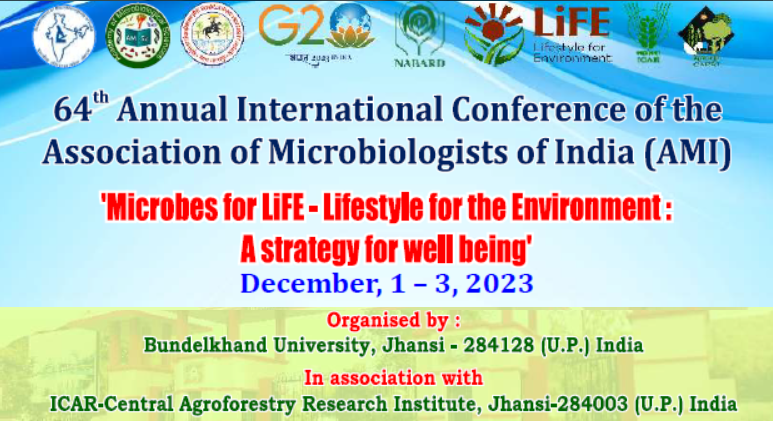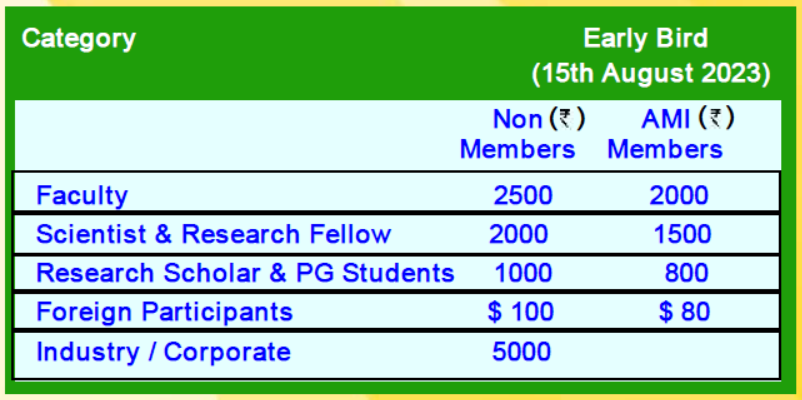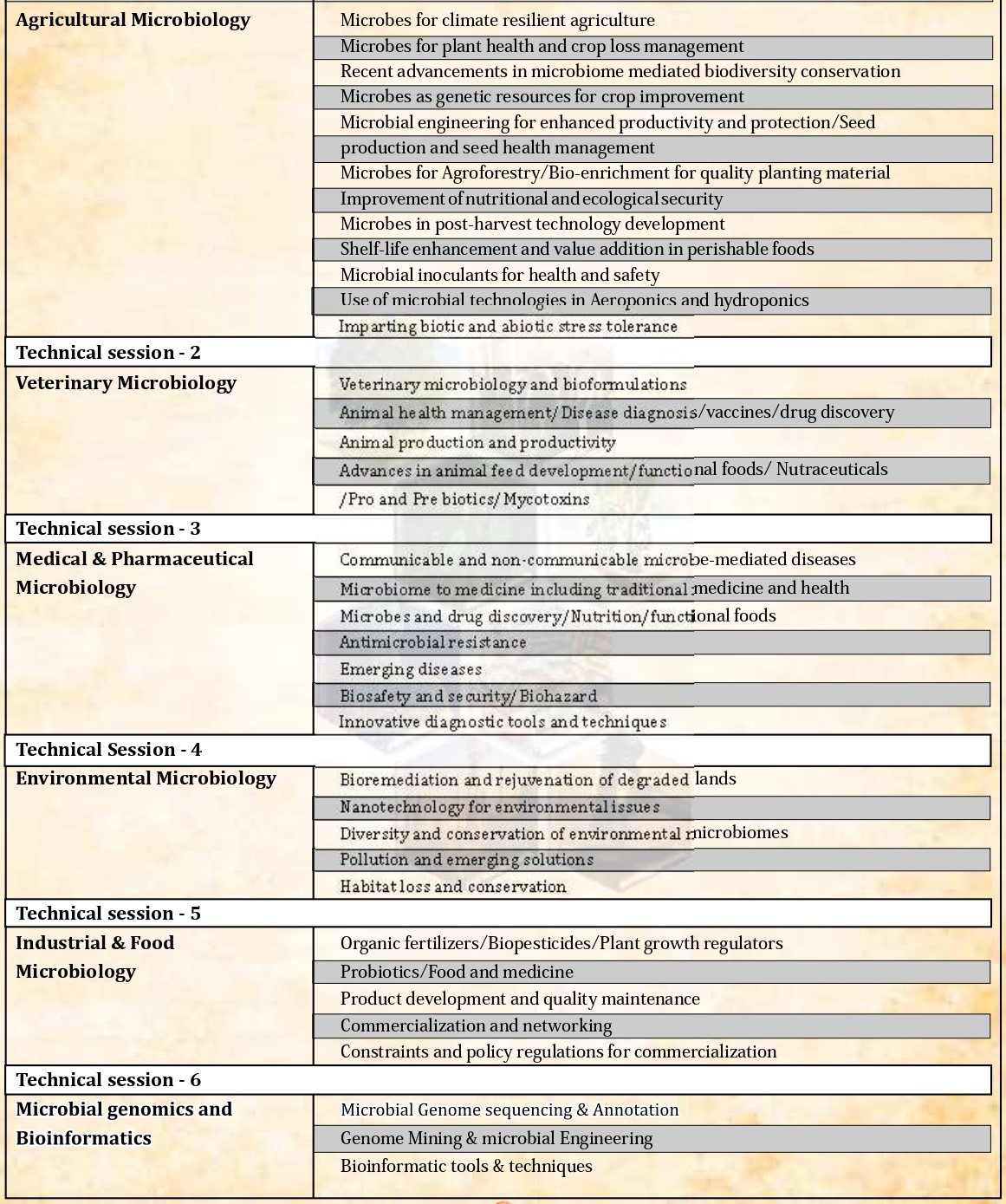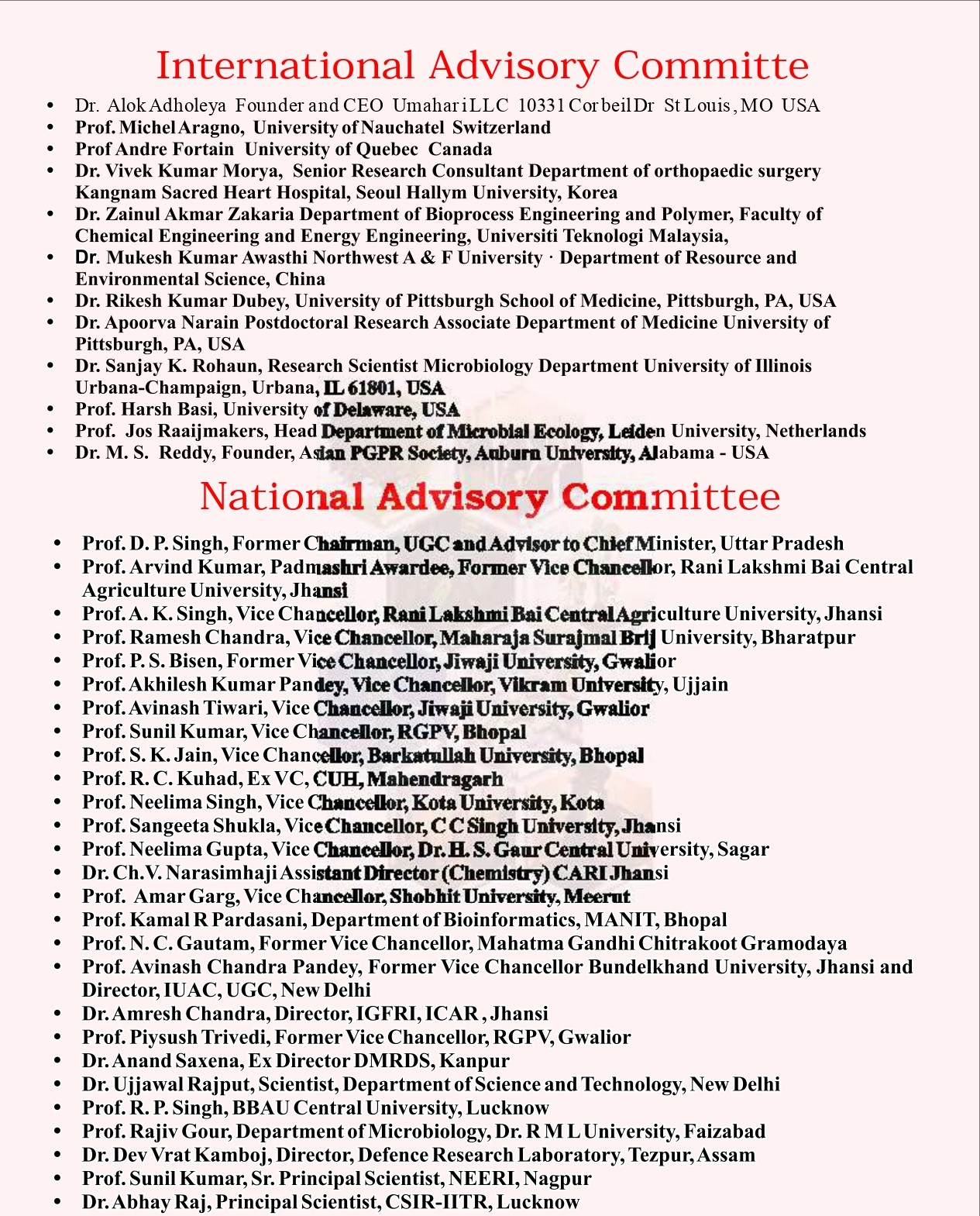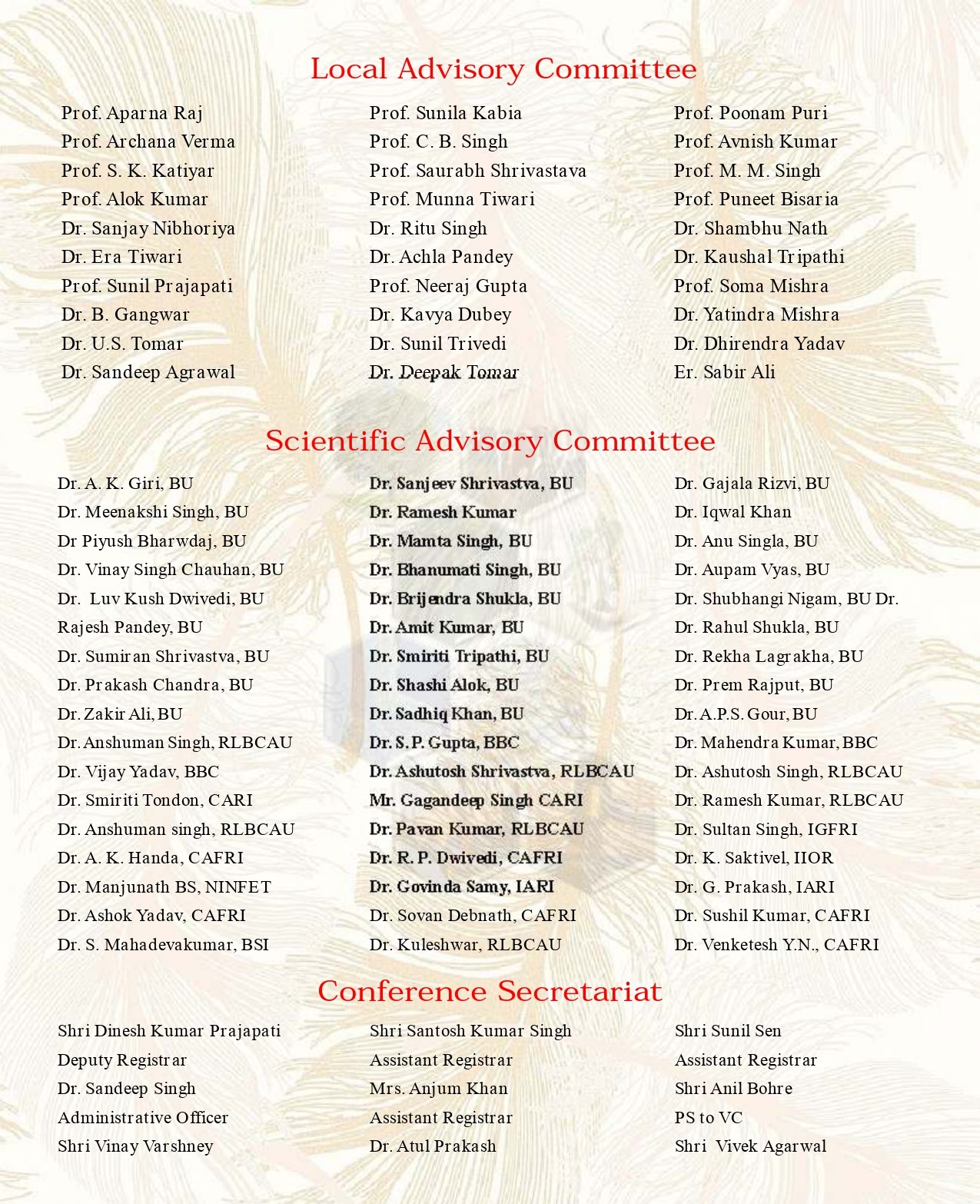Message

Prof. Mukesh Pandey
Vice Chancellor
Bundelkhand University, Jhansi (U.P.) India
This is a moment of immense pride for us to welcome you to Jhansi (U P) for the 64 International Annual Conference of Association of Microbiologists of India (AMI) which takes place between 1-3 December, 2023. The conference is jointly organized by the Bundelkhand University, Jhansi (U P) in association with ICAR-Central Agroforestry Research Institute (CAFRI), Jhansi. The main theme of the conference is 'Microbes for Life -Lifestyle for the Environment: A strategy for well-being”. The event is taking place in hybrid mode which can be attended through online virtual platform and in person at Gandhi Auditorium, Bundelkhand University, Jhansi (U P), India.
Microbes and their activities have a large and unexpectedly profound impact on human health and well-being, as well as the functioning of the entire biological world and the planet's atmosphere.Microorganisms serve as an affirmative role in making humans' life much better and easier by maintaining numerous natural as well as man-made singularities in the environment.
The life support system of the biosphere is made up of microbial resources that work along with the Sun. There are many misconceptions about microbes, and they can be dangerous if they aren't swiftly dispelled by the general public. There are a lot of microbes that have no effect on our life, but there are also a lot of useful microbes and a few that are hazardous. It's the pathogens who get the most attention and are the most well-known. Though we need to depict microbes as our buddies, they may also assist us solve key challenges like enhancing food production and the beneficial aspects to society. This necessitates their inclusion in day-to-day decisions as well as those made at all levels of community, national, and global health. Microbiology literacy, on the other hand, is poor among the general public and decision-makers, in contrast to other areas with a broad impact on society, like as health, economics, and transportation, which are well-understood.
As seen with the ongoing pandemic, infectious diseases caused by viruses, bacteria, fungi and other microbes continue to plague humanity. Those living in countries with limited resources and limited access to medical care suffer the most from neglected tropical diseases like malaria and Ebola. On the other hand, a third of the drugs we use, including numerous antibiotics factories for new drugs made by recombinant DNA technology and the source of proteins used in vaccines and numerous therapies. Gut microbes are key components of health as they assist in food digestion and are even responsible for the production of some of the vitamins that are essential for our health.
The AMI-2023 International Conference will provide a common forum to discuss, deliberate and formulate recommendation about future thrust areas to research on various aspects related to agriculture and environment bioenergy, from food and dairy to veterinary microbiology, from microbial diagnostics to genomics, proteomics and metabolomics will together constitute this mega event for human welfare. The scientific discussions on microbial processes and technologies are envisaged to provide potential solutions to the global challenges related to environment and health. It will be a great opportunity to Microbiology and Life Sciences students to interact with some renowned scientists from different parts of the world. The conference will invite several renowned speakers across the globe and we hope you all find the event to be both educational and entertaining.
We hope that you'll relish the feast of ideas the conference, and stay connected with us.
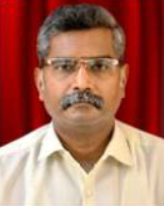
Dr. A. Arunachalam
Director
ICAR - Central Agroforestry Research Institute, Jhansi
Planet earth is teeming with an incredible diversity of microscopic life forms, which include bacteria, archaea, fungi, viruses, and other tiny organisms. Despite their small size, microbes play a crucial role in shaping the planet's ecosystems and sustaining life in various ways. Their importance spans across ecological, environmental, medical and even industrial aspects. However, the ecosystems throughout are under severe degradation due to anthropogenic activities and the microbial diversity is gradually diminishing on various landscapes. One must realize adopting an environmentally-friendly lifestyle involves conscious choices to
reduce waste and energy consumption, prioritize sustainable products, and support conservation efforts. By practicing the "3 R's" (reduce, reuse, recycle), conserving energy and water, choosing sustainable foods, minimizing single-use plastics, using biofuels for transportation, and advocating for environmentally-conscious policies. Every individual can significantly contribute to a healthier planet, preserve natural resources, and mitigate the impact of climate change while fostering a deeper connection with nature. For instance,' Agroforestry' plays a vital role in addressing multifaceted challenges faced by modern agriculture and the environment. From an ecological standpoint, its ability to promote biodiversity, enhance soil health, mitigate climate change, diversify income, and strengthen rural communities underscores its significance. As the world strives for sustainable and
resilient food systems, agroforestry stands as a powerful and adaptable solution that aligns with both ecological integrity and economic prosperity. I would highlight, on this occasion that India is the first country in the world to adopt an agroforestry policy in 2014. The policy was created to counteract limited agricultural productivity due to consistent decreases in the landholdings of farmers, which has been caused by rapid growth of population and agricultural activity dependent on seasonal rainfall. At present, most of the industrial wood requirements are met through agro/farm forestry rather conventional forests. This reduces the burden on countries green economy.
Hence this is high time to adopt sustainable, environmentally sound strategies to promote the overall wellbeing. This will be possible only when we follow the current trends in research, reorient policy and framework, creating platforms for scientific and industrial networking. I am sure, this conference would facilitate discussion on major aspects of microbiology in the sectors of agriculture, medical, veterinary and industry for the LiFE (Lifestyle For the Environment). Also, it is anticipated that this platform could help in knowledge sharing among academia, scientists and industries.
